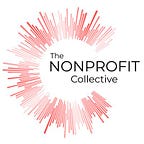We Asked, They Answered: Perceptions about the Nonprofit Workforce
Written by Victoria Shadle
In 2020 as part of the “Surveying the Field” series, I interviewed 20 strangers working across the US in the nonprofit sector with a wide range of backgrounds and asked each of them the same four questions. Here are the most common responses to our third question:
What do you believe people think about working in the nonprofit sector, and how has that aligned with or challenged what you’ve experienced?
People think that nonprofits don’t pay well…
The assumption that nonprofit work is low-paid, or even just volunteer work, is pervasive. Many, many people I spoke with brought this up from multiple angles.
Both Linda Lysakowski and Staci Lowell, nonprofit consultants from Nevada and Ohio respectively, see the reputation of nonprofit jobs being lower paid than similar work in the for-profit sector as being a barrier that keeps good people away. Zulakha Iqbal, who has worked at nonprofits and for-profits in Washington D.C., felt it almost went without saying that there’s a perception that nonprofit staff are grossly underpaid and don’t have benefits.
Stu Manewith from Missouri pointed out that while in some parts of the sector workers are being paid lower wages, in many other parts of the sector it’s absolutely false and workers are compensated well and receive benefits similar to what they’d receive in the for-profit sector. For example, Stu shared that the salary and benefits of working at a large nonprofit university are often very different than working at a small nonprofit food bank.
There’s a negative stigma around working in fundraising…
Many of the guests I spoke with work in development or fundraising and wanted to shared reactions they’ve gotten to their job function specifically.
Paul Yeghiayan, a fundraising consultant from Washington D.C., and Catherine Lepone, a nonprofit leader and fundraiser from New York, both said they’ve encountered a negative stigma around fundraising and that it can be alienating or unsavory to those outside the nonprofit world. Catherine said she’s even been asked when she’ll get a “real job” and Paul joked that telling someone you’re sitting next to on a plane that you work in fundraising is the easiest way to ensure you’ll have a quiet flight!
Anastasia Schriber, a development director from Illinois, finds that this stigma goes beyond nonprofit staff fundraising and also includes how board members feel about raising money themselves. She’s found many generally balk at the idea of trying their hand at fundraising and are generally uncomfortable with asking for money.
Elicia Hinson, a more junior-level development professional from Florida, also has encountered a negative stigma around fundraising with people believing that fundraising is simply catering to the wealthy and nonprofit staff at the beckoning call of donors. Relatedly, Catherine thinks it’s important for people to understand that fundraising isn’t just taking money, it’s an exchange, an opportunity for someone to use their money in a way that aligns with their values and makes an impact in the world.
It’s clear from these reactions and more that even beyond nonprofit work, there is an extra stigma associated with development and fundraising.
“We have to bring fundraising out of the shadows, without raising money you don’t have the programs.” — Linda
People think that working in nonprofits isn’t a real career path or not a professional occupation…
A number of guests including Erica Strother, a nonprofit marketing professional from Ohio, brought up the perception that nonprofit work is seen as lesser than similar work in the for-profit sector. Nicole Gabler, who works in development in Texas, finds that people don’t often realize how much strategy and process refinement there is in this line of work, for fundraising specifically people don’t realize it’s often referred to as both an art and a science.
Vallye Adams, a fundraising consultant from Florida, and Justin Spainhour-Roth, a marketing manager from Georgia, both find that people outside the sector don’t realize how large of a workload many nonprofit professionals have. Vallye also shared that while within the nonprofit sector it’s common for people to talk about wearing many hats and being responsible for wildly different job functions, that isn’t typically well known by those outside the nonprofit sector.
Pau also shared that he’s encountered people who believe that nonprofit employees work in the sector because they couldn’t make it in the for-profit sector and that they’re passionate but not logical.
For Pam Anderson, a fundraising consultant from Texas, in her small town nonprofit work is often synonymous with founding a nonprofit since so many of the organizations there are one-person operations or volunteer-run.
Of the four big-picture questions asked in the “Surveying the Field” series, this question on perceptions about working in nonprofits received the most similar responses. Nonprofit professionals all across the country brought up strikingly similar experiences and, unfortunately, it was consistently these negative connotations that position nonprofit work as undesirable because of the low pay, not as legitimate as other careers, and unsavory when it comes to specifically fundraising work.
Does this resonate with what you’ve experienced? Let us know by filling out this form or emailing us at npcollectiveblog@gmail.com. Please also follow The Nonprofit Collective on Medium, LinkedIn, Facebook, and Twitter and check out how “Surveying the Field” guests responded to our other question about what they’d tell nonprofit volunteers and board members in this article.
